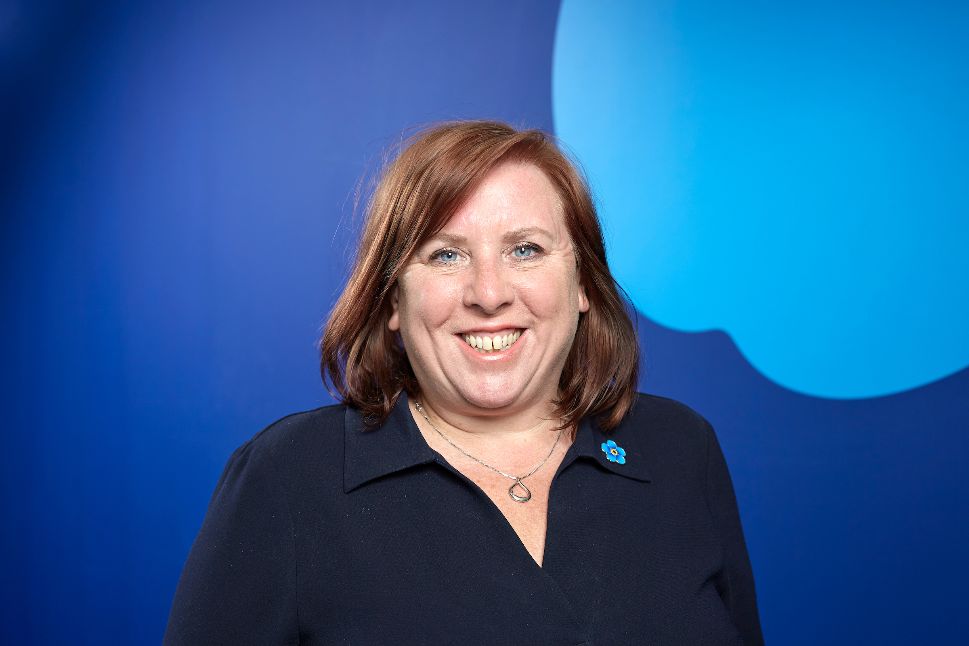The statistics are stark. Every three minutes someone will develop dementia. But currently only 63 percent of people with dementia in England have received a diagnosis – almost four points below the national ambition of 66.7 percent.
An early and accurate diagnosis not only helps prepare families for the future, but opens the door to vital treatment, care and support and, crucially, avoids people ending up in crisis.
At Alzheimer's Society, they are buoyed by seeing the number of GP assessments return to pre-pandemic levels, but it’s concerning that overall, diagnosis rates are still stagnating since reaching a five year low during the pandemic.
There are an estimated 900,000 people living with dementia in the UK, including 11,900 in Birmingham and over 84,000 across the West Midlands. But it’s also know that’s not the full picture. 25,244 people needs to be diagnosed to get back to the national target of 66.7%.
Rurality, deprivation and ethnicity can all be significant barriers to diagnosis. Taking ethnicity as an example – a 2022 Alzheimer’s Society report revealed that people of South Asian heritage are more likely to develop dementia compared to the general population, but getting a dementia diagnosis if you are South Asian is often much more difficult.
Diagnostic tools can have both cultural and language barriers – with memory test questions often geared to people who’ve lived in the UK all their life, and translation services scarce.
At Alzheimer’s Society, we’re playing out part by translating information, advice and support into eleven different languages, including British Sign Language, and last year piloted a resource page tailored for Punjabi-speaking communities, tackling culturally specific issues including stigma. But the healthcare service needs more investment to reach every community and break down these complex barriers.
With new breakthrough dementia treatments coming rapidly down the track, tackling diagnosis can’t wait. After 20 years with no new Alzheimer's drugs, there are now two potential new treatments that seem able to slow the progression of the disease, and another 141 drugs in clinical trials.
Based on last week’s early results, donanemab demonstrated less decline of everyday activities such as driving, doing hobbies and managing finances. And the most recent projections suggest lecanemab could delay the progression to the moderate or severe stages of Alzheimer’s disease by two to three years.
This is a huge step forward in increasing the quality of life of people with Alzheimer’s. But it is impossible to give someone a drug if you don’t know they have the disease.
People will not be able to access these drugs early, when they work best, if we don’t remove the barriers to timely and consistent dementia diagnosis.
Decisions as needed quickly as possible from the regulators MHRA and NICE on these new drugs, but hand in hand we need to see a revolution in dementia diagnosis. There are lessons we can learn from other conditions – for example when multiple sclerosis drugs arrived that could give someone more than seven extra years before they have to use a wheelchair.
The introduction of these drugs catalysed a radical change in how MS is diagnosed and treated within the NHS. This is exactly what needs to happen for dementia.
This is why today I have co-signed a Diagnosis Consensus Statement, with 26 other experts in the field of dementia. We have come together to call for better funded and evidence-based dementia pathways to deliver effective support, intervention and treatment.
We want to see a concerted effort to drive up diagnosis rates, and tackle variation. We want to see Government acting on these recommendations, and taking steps to push dementia diagnosis rates back up to the national ambition of 66.7% through the Major Conditions Strategy. Now is the time to be bold and ambitious for dementia.
Without this progress, thousands more people will be locked out of the potential to improve their quality of life and prolong their independence. We must urgently work together – now – to improve diagnosis, ongoing care and outcomes for people living with dementia.












